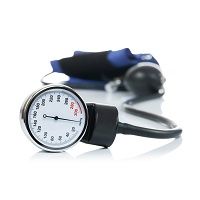BP Screening Guidelines under Scrutiny
Patients with mild hypertension may not be getting the care they need, according to 2 studies and an editorial due to be published Dec. 23 in Annals of Internal Medicine. In the second of the 2 studies in the journal, done for the US Preventive Service Task Force, researchers find office-based blood pressure readings are often less accurate than ambulatory blood pressure screening.

Patients with mild hypertension may not be getting the care they need, according to two studies and an editorial due to be published Dec. 23 in
Annals of Internal Medicine.
In the sceond of the two studies, done for the US Preventive Services Task Force, researchers find office-based blood pressure readings are often less accurate than ambulatory blood pressure screening.
Combining data from a previous systematic review of 3 trials focused on treatment of patients with stage 1 hypertension, Johan Sundstrom, MD, PhD, of Uppsala Clinical Research Center in Uppsala, Sweden and colleagues looked at mostly diabetic patients, 61% of whom were getting antihypertensive drugs at baseline. Adding diabetic patients to those in the earlier study, known as the Blood Pressure Lowering Treatment Trialists’ Collaboration database, the researchers compared aggressive treatment with less intensive care and placebo.
In their review the authors wrote, they found intensive treatment resulted in a modest reduction of blood pressure and a significant reductions in stroke (28%) cardiovascular deaths (25%) and total deaths (22%.)
Those results seem to go against a recent guideline change from the National Committee for Quality Assurance. That group calls for relaxing blood pressure goals in patients 61 or older.
Annals of Internal Medicine
In the second article on blood pressure, Margaret Piper, PhD, MPH and associates report on a study conducted for the US Preventive Services Task Force on what to recommend for screening for hypertension.The task force has posted a draft recommendation statement based on Piper's findings.
Piper and colleagues found that using ambulatory blood pressure monitoring instead of relying on taking blood pressure in a medical office setting would improve diagnostic accuracy. When the USPSTF last wrote a recommendation on blood pressure screening in 2007, the organization did not try to evaluate the diagnostic accuracy of screening protocols.
Piper and colleagues reviewed prior studies and found evidence that in office-based screening there is a risk that patients whose blood pressure is high during the office visit do not have hypertension but that the readings return to normal outside the office. “This group may be harmed by misdiagnosis and unnecessary treatment,” she wrote.
The researchers also noted that clinicians administering these office-based readings do not use a consistent protocol. For instance, patients may not be told to avoid caffeine before getting the screening, or told not to cross their legs during the test. Both practices can result in inaccurate measurements.
They also found few studies on whether manual sphygmomanometry was less accurate than automated devices.